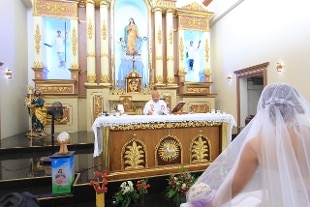- The Pope appoints Draghi as a member of the Academy of Social Sciences
- Vatican. Statutes to be rewritten and offices to be reorganized, Pope Commissioner Fabbrica di San Pietro
Share
20 July 2020The mass and the sacraments cannot entail "a price to pay" or "a tax to be demanded" and the shortage of priests may lead, in an "exceptional" way, to make some sacraments also celebrated by the laity. The Vatican establishes it in an Instruction in which it redefines the role of parishes. We cannot "give the impression that the celebration of the sacraments, especially communion, can be subject to tariff". Finally, the Bishop will be able to entrust "some assignments to deacons, consecrated persons and lay faithful, under the guidance of the parish priest".Openness to lay people
These are some of the new rules intended to change the face of parishes, less concentrated on the territory and more missionary. Above all, given the shortage of priests, in the future - "exceptionally" - it will also be possible to see the laity, men and women, on the altar called to celebrate some sacraments such as baptism, weddings, funerals.
As Pope Francis has repeatedly asked, some of the indications contained in the instruction "the pastoral conversion of the parish community at the service of the evangelizing mission of the church" by the congregation for the clergy, presents, among the novelties, a call to parish priests to involve in the organization of activities even the unbaptized.
However, the possibility of lay people, singles or in groups, becoming parish priests in the strict sense is not contemplated. the role will always be assigned to a priest and, in the event of the impossibility of having one full-time, to preside over the life of the parish there will still be a presbyter to coordinate on the delegation of the bishop.
Offers, not tariffs
Another issue addressed by the new rules, that of 'offers': from masses in suffrage to those for weddings, in some parishes there is a sort of 'tariff', which will no longer be possible to apply. Mass and sacraments cannot entail "a price to pay", "a tax to demand", one cannot "give the impression that the celebration of the sacraments, especially the most holy Eucharist, and other ministerial actions may be subject to tariffs ", underlines the Vatican document.
The document also establishes the rules concerning the suppression and merger of parishes, as well as the functioning of internal bodies such as pastoral councils or those for economic affairs, to respond to that 'outgoing church' dear to Pope Francis and, even after the digital experience linked to the lockdown, no longer forced into a territorial logic.

